What is Cliff Richard doing now?
Singer has thrown his support behind a pressure group pushing for anonymity before charge in relation to sexual offences
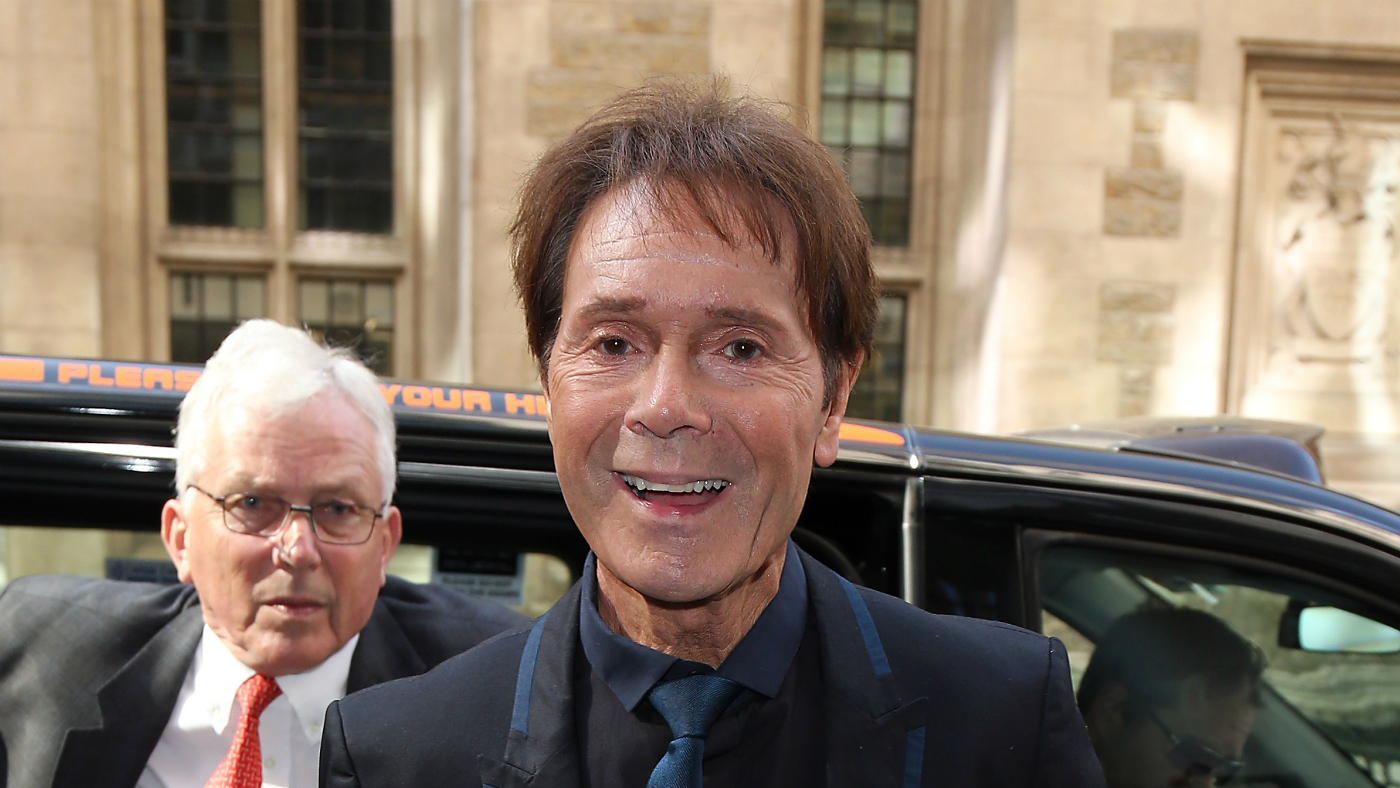
A free daily email with the biggest news stories of the day – and the best features from TheWeek.com
You are now subscribed
Your newsletter sign-up was successful
Why Cliff Richard’s win against the BBC is a big deal
18 July 2018
The BBC has lost a privacy case brought to court by Sir Cliff Richard in a ruling it describes as a “dramatic shift against press freedom”.
The singer sued the BBC over its coverage of a police raid at his apartment in Sunningdale, Berkshire, in August 2014. Richard was investigated by South Yorkshire Police after a man claimed he was sexually assaulted by him as a child, in an incident at Sheffield United’s Bramall Lane football stadium in 1985.
The Week
Escape your echo chamber. Get the facts behind the news, plus analysis from multiple perspectives.

Sign up for The Week's Free Newsletters
From our morning news briefing to a weekly Good News Newsletter, get the best of The Week delivered directly to your inbox.
From our morning news briefing to a weekly Good News Newsletter, get the best of The Week delivered directly to your inbox.
Richard, who denied any wrongdoing and was never arrested nor charged for an offence, took legal action to redress the “profound and long-lasting damage” he suffered.
The police force agreed to pay the singer £400,000 in damages, but the BBC tried to contest the claim.Today, he was awarded an initial £210,000 in damages by High Court judge Mr Justice Mann, split between the BBC (65%) and the police (35%). The BBC is considering an appeal.
Richard described the outcome as “wonderful news”, but what does it mean for media reporting?
The judge essentially rejected the BBC’s claim that its right to freedom of expression outweighed Richard’s right to privacy, both of which are outlined in the Human Rights Act. The judge ruled that Richard’s privacy rights were infringed in a “serious” and “somewhat sensationalist” way.
A free daily email with the biggest news stories of the day – and the best features from TheWeek.com
This was based on the fact that he did not believe the police volunteered information about the raid to the BBC, but that the police were “manoeuvered into providing it from a fear and implicit threat that the BBC would or might publish news of the investigation before the police were ready to conduct their search”.
Media law expert David Banks previously warned that a win for Richard would be a “landmark decision into privacy” and could “change the way media behave”.
He told BuzzFeed News that Richard’s argument appeared to be that people who are being investigated by police but are not yet charged have a right to privacy.
Other media experts said the ruling would have enormous bearing on whether the media can identify someone who is under investigation by police but who has not been charged.
Today, the BBC’s director of news, Fran Unsworth, said the judge had essentially found the very naming of Richard unlawful.
“This judgment creates new case law and represents a dramatic shift against press freedom and the long-standing ability of journalists to report on police investigations, which in some cases has led to further complainants coming forward,” she said. “This impacts not just the BBC, but every media organisation.”
Police investigations, raids and officer conduct could go unscrutinised as a result, she said.
“We don't believe this is compatible with liberty and press freedoms; something that has been at the heart of this country for generations. For all of these reasons, there is a significant principle at stake,” said Unsworth.

9 May 2018
Sir Cliff Richard may have suffered ‘permanent damage’ at trial
Sir Cliff Richard’s lawyers have criticised BBC bosses over how the singer was questioned about his “religious and political beliefs” during a High Court trial.
The singer is suing the BBC for invading his privacy and breaking data protection rules.
Mr Justice Mann has finished analysing evidence at the High Court trial in London and is now considering the closing legal arguments.
He was told Richard is seeking damages from the BBC of between £175,000 and £250,000 for general and aggravated damages.
Barrister Justin Rushbrooke QC, who is leading Richard’s team, said in his written closing submission that his client “might have suffered permanent damage to his self-esteem as a result of the BBC coverage”, reports the Evening Standard.
Arguing that the singer should receive damages at the top end of the scale, Rushbrooke said the BBC had “added considerable insult to the injury that its coverage caused” by “cross-examining [Richard] in an intrusive way about his religious and political beliefs”.
In some cases, Rushbrooke said, these were views the singer had expressed “decades previously”.
There was no “reasonable justification” for such a course of questioning, rather the “purpose of doing so appeared to be to insinuate hypocrisy on his part”.
"The latter part of the cross-examination also caused him to relive very painful events in a way, or to an extent, that was unjustified and caused him to break down in tears," Rushbrooke said.
Gavin Millar QC, representing the BBC, told the judge: “The allegation being investigated was of a serious criminal offence.
“The BBC's reporting was confined to the most basic facts, visual images, concerning the investigation and the search.”
He added: “There was nothing in the reporting that was inconsistent with the presumption of innocence.”
South Yorkshire Police has settled its own case with the singer by paying him £400,000 and argues that the broadcaster should pay a share of this because its actions were “far more causative of the damage suffered”, reports the Daily Mail.

26 April
Sir Cliff Richard vs. BBC: what have we heard so far?
The legal battle between Sir Cliff Richard and the BBC continued this week at London’s High Court in a case that has major implications for media reporting.
The singer alleges that the BBC’s coverage of the South Yorkshire Police raid on his home in August 2014 was a serious invasion of his right to privacy, for which there was no lawful justification. He also alleges breaches of his data protection rights.
Richard was targeted by investigators after a man claimed to have been sexually assaulted by him as a child, in an incident at Sheffield United’s Bramall Lane football stadium in 1985.
Richard, who denied any wrongdoing, was never arrested or charged for an offence.
The trial, being overseen by Mr Justice Mann, centres on Richard’s right to privacy under Article 8 of the Human Rights Act.
Media law expert David Banks told BuzzFeed News: “Richard appears to be arguing that people who are being investigated but not yet charged have a right to privacy. The BBC’s argument is that this was a police action taken against one of the biggest stars in Britain, therefore it’s a matter of public interest.
“If Cliff wins against the BBC, and the judges issue a broad verdict, it could be a landmark decision into privacy and change the way media behave.”
So what have we heard so far?
BBC bosses surprised by level of access granted
BBC bosses said they feared being criticised if they did not cover the story of a police investigation of such a well-known figure.
The broadcaster’s director of news and current affairs, Fran Unsworth, told the court: “My instincts tell me that had it emerged that the BBC had chosen to ignore that story in full knowledge of it, the public audiences would have had questions about our role... it would have looked potentially as though we were not covering this story because Sir Cliff was a high-profile individual."
She added: “I thought it surprising South Yorkshire Police had given this level of access and I thought that was worth showing the public.”
Unsworth said it had been a mistake to show “live footage”, adding that it was the first time the BBC had named an individual before arrest in connection with a minor.
"We understood he would have been arrested if at the property," she added.
Police thought coverage was excessive
Former head of South Yorkshire Police David Crompton told the court: “Never did I imagine in my wildest dreams the BBC would do what they did. I’ve not seen coverage like this ever in my police career.”
He said he thought the helicopter footage was “disproportionate”.
Representing the BBC, Gavin Millar QC, put it to Crompton that South Yorkshire Police wanted television coverage of the search.
“We were put in a difficult position,” Crompton replied. “I considered it to be of paramount importance that we were able to complete an unhindered and untainted investigation, and one might say the relationship with the BBC became a shotgun wedding.”
The police “felt forced” to give BBC information
Retired detective superintendent Matthew Fenwick said he believed BBC reporter Dan Johnson would run a story about the force's investigation into the singer unless he was told about the search.
Describing a July 2014 meeting Johnson and the force's head of corporate communications, Fenwick said: “I believed the BBC was in a position to publish a story and I didn't want them to publish a story at that stage.
“[Johnson] said he could and he would, and we came to an arrangement that he would not publish it then but that we would let him know when we were going to take further action.
“I felt that we didn't have many options - there was no option, other than to cooperate with him.”
The court also heard that following the broadcast of the raid, an internal email between two of Johnson’s bosses at the BBC described the reporter’s approach as “heavy-handed” and said that he had “nailed (South Yorkshire Police) to the wall”.
Asked in court whether he had indeed had South Yorkshire Police “nailed to a wall”, or “over a barrel", Johnson denied the claim.
The reporter said that the force's account about him pressuring them was “a concoction”.
BBC reports prompted conspiracy theories
Giving evidence on the fifth day of the case, Richard’s solicitor, Gideon Benaim, told the court that the BBC’s coverage had prompted “spurious allegations” online from conspiracy theorists.
“I believe it was as a direct result of the publicity generated by the BBC that various people came out of the woodwork,” Benaim said. “Those allegations came to nothing eventually,” he added.
“Quite clearly, but for the BBC actions on the day, there would have been no need for vast amount of work we did for [Richard]. In all likelihood, we would have just carried on advising the client in the same low-level and intermittent basis we had been advising him on before [the raid],” Benaim concluded.

18 April
BBC reports on Cliff Richard raid 'sparked conspiracy theories'
Media coverage of the police search of Cliff Richard’s home led to a slew of “conspiracy theories” and trolling online, a court heard today.
The singer has taken legal action against the BBC over the way it reported a search by the South Yorkshire Police of his apartment in Sunningdale, Berkshire, after he was accused of sexual assault. Richard, who was never arrested or charged, claims that the August 2014 raid “destroyed his life” and is seeking damages.
Giving evidence on the fifth day of the case, his solicitor Gideon Benaim told the court the BBC’s coverage - which included images taken from a helicopter of officers searching the property - prompted “spurious allegations” online from conspiracy theorists.
“I believe it was as a direct result of the publicity generated by the BBC that various people came out of the woodwork, and those allegations came to nothing eventually,” Benaim said. “Quite clearly, but for the BBC actions on the day, there would have been no need for vast amount of work we did for [Sir Cliff]. In all likelihood, we would have just carried on advising the client in the same low-level and intermittent basis we had been advising him on before [the raid].”
This singer is also claiming that the South Yorkshire Police inquiry would have been shorter than 22 months if the BBC had not broadcast the raid as it did.
The BBC has refuted the claims, insisting it reported on a story of “legitimate public interest”. The broadcaster’s lawyers say that its coverage of the search was “accurate and in good faith” and that journalists had respected Richard’s “presumption of innocence”.
8 December 2016
BBC vows to defend itself against Cliff Richard legal action
The BBC has vowed to "vigorously" defend itself against a lawsuit from Sir Cliff Richard over its coverage of a 2014 police raid on his Berkshire home.
It has filed a defence with the High Court in London against the singer's claims for damages, which could top £1.5m.
The BBC said it has a "responsibility" to report stories of public interest and that the sexual assault allegation against the star fell "squarely" in that category, the Evening Standard reports.
Richard, 76, was accused of sexual assault by a man who said the incident occurred in Sheffield in 1985, when he was a child.
The allegation, made in late 2013, reached South Yorkshire Police in July the following year and the force's subsequent raid on Richard's estate in Berkshire was broadcast live by the BBC, including helicopter footage of police entering the property.
Richard has always denied the accusation, which was part of a long-running investigation into allegations made between 1958 and 1983 by four men, and in June this year, prosecutors said he would face no charges.
But the singer said he suffered damages to his privacy and reputation following the well-publicised raid. He claims he was hung out like "live bait" after he was named by media before being interviewed by police.
Tony Hall, the BBC's director general, told MPs in September 2014 that police had coordinated with the BBC ahead of the raid and sent it an aerial photograph of Richard's home the night before.
Richard is demanding "very substantial" damages from the BBC and the police force, which he claims contravened guidance on relationships with the media. Both institutions have apologised over the incident.
His lawyers argue the apology is not enough and claim the star has run up more than £1m in legal bills. He also felt forced to sell the apartment because he had been "so publicly violated" at that address and had to delay the release of a rock 'n' roll classics album, they said.

BBC's One Show host asks Cliff Richard: 'Why are you here?'
11 November
BBC's cosy live magazine programme The One Show is not known for tough questions or embarrassing moments. Yesterday, however, presenter Alex Jones asked Sir Cliff Richard why he was appearing on the show while suing the BBC.
It was a moment of toe-curling embarrassment, says Metro, but Jones did not readily give up the line of questioning.
Richard replied: "My relationship with the BBC... is fine. I'm here aren't I? I mean, the BBC to me is The One Show, it's the radio shows I listen to. I listen to them all over the world. I listen to the Today programme, The Archers when I catch up with it…"
The 76-year-old singer is taking the broadcaster to court over its live coverage of a police raid on his home in 2014, when he was being investigated over alleged historic sexual offences.
Richard faced accusations from four men, relating to the period between 1958 and 1983, but was never arrested or charged. The case was dropped by the Crown Prosecution Service in June, after it decided there was insufficient evidence to bring an action.
In October, Richard launched a legal action against South Yorkshire Police and the BBC over the televised raid. He is seeking £1.5m damages from the BBC.
Last night on The One Show, Jones said Richard's appearance on BBC1 was a little "awkward" and asked him why he had decided to promote his new album on her show despite suing her employer.
Asked how the police investigation had affected him, he said: "You feel like you're in a hole, and no matter how much you're loved – my fans, my family, my friends – in the end you get to bed at night and you're on your own again.
"And you can't help but think, 'How do I get out of this? How do I escape from this emotional trauma?'
"Paul Gambaccini said to me… Unless you go through what we've been through, it's impossible to explain what it's like… It was a terrible, terrible two years. But it's over."
Cliff Richard: Police 'texted BBC during house raid'
26 October
Court papers allegedly reveal the text messages sent between a BBC reporter and South Yorkshire Police ahead of the police raid on Sir Cliff Richard's Berkshire home in 2014.
The singer is suing both organisations after the raid was broadcast live on television.
The Sun reports a document filed at the High Court in London earlier this month shows the communications between a police press officer and BBC reporter Dan Johnson.
"Going in now, Dan," the press officer reportedly said.
Johnson is said to have replied: "Give me a shout before they take anything out, so we can get the chopper in place for a shot."
In another message, Johnson allegedly wrote: "Cheers – take it he's not home?"
The Sun says Richard has spent more than £1m on his lawsuit and now wants a "significant proportion" of his legal costs paid and at least £200,000 more in "aggravated damages".
A legal source told the newspaper: "The writ runs to 26 pages and is utterly devastating. It represents total war between Sir Cliff and the BBC and the police."
A spokesman for the BBC said: "We've said previously we are very sorry that Sir Cliff has suffered distress but we have a duty to report on matters of public interest and we stand by our journalism."
Richard was investigated over accusations of historical sexual offences, but was never arrested or charged and the case was finally dropped this year on the grounds of insufficient evidence. He has strongly denied the claims.
Cliff Richard: I'm tainted by false abuse claims
18 October
Sir Cliff Richard yesterday told MPs and peers he fears he will forever be "tainted" by false allegations of sexual offences.
The 76-year-old singer was speaking at a private meeting in Westminster as part of a campaign led by former police officer Lord Paddick to give anonymity to people accused of sex crimes.
Richard was first accused in 2014, when South Yorkshire Police raided his home, with the BBC televised events live. He is now suing both organisations.
"The TV circus took away from me all hope of ever being what I had been before - a confident and respected artist and an ambassador for Great Britain," he told politicians.
"Had I not been 'named' worldwide, I feel I would still have been able to look people in the eye and not feel afraid that they might be thinking that there is no smoke without fire. Instead, I fear I will forever be tainted by the lurid and intrusive coverage I received.
"I have had to bring civil proceedings to obtain redress for these appalling invasions of my privacy by the police and the BBC. But that can never undo all the damage I have suffered. It would have been so much better never to have been in this position at all."
MPS also heard from broadcaster Paul Gambaccini and former deputy speaker of the Commons, Nigel Evans, who were both accused of similar offences.
Gambaccini was kept on police bail for 12 months over historical sex offences before being told he would not be charged, while Evans was cleared by a jury of sexual crimes in 2014.
The group also heard from Lady Brittan, says the Daily Mail, who was told in March that her late husband, Tory MP Leon, had no case to answer after a police investigation of an alleged high-profile paedophile ring.
The Metropolitan Police apologised to her for failing to tell Lord Brittan before he died that he would face no further action over a separate allegation.
Cliff Richard to meet MPs over anonymity for sex abuse suspects
17 October
Sir Cliff Richard will today call on politicians to grant anonymity to people accused of sex crimes.
The singer, who this year was cleared by the Crown Prosecution Service (CPS) of four allegations of historic sex abuse, is campaigning for a change in the law alongside DJ Paul Gambaccini and MP Nigel Evans, both of whom were investigated and cleared of similar allegations.
He will meet MPs and peers at the House of Lords to discuss giving sex abuse suspects the same anonymity rights as alleged victims.
While Richard is not the first to call for this, the idea is controversial.
Victims' rights advocates argue publicising the identity of those accused is vital to give other victims or witnesses a chance to come forward with their own accounts. This is particularly important in cases involving sexual offences, where conclusive physical evidence is often lacking.
In an open letter to Richard and his co-campaigners, the End Violence Against Women Coalition said: "When a person is accused of a crime in our legal system, it is important that the rest of the community knows who is accused of what, in order that corroborating evidence can be sought, and indeed in order that alibis or contradicting information may come to light."
The organisation says the celebrities' decision to attack current anonymity laws was "grossly misdirected" and suggests Richards would be better off targeting the "media behaviour and sensationalism" surrounding sex abuse investigations.
Richard faced a long investigation based on accusations dating between 1958 and 1983 made by four men, but was never arrested or charged.
In June, the CPS said it would take no further action on the grounds of "insufficient evidence". This decision was upheld in a review last month.
During the inquiry, the BBC broadcast live footage of South Yorkshire Police raiding the singer's home. He is suing both organisations for the damage caused to his reputation.
The move has reportedly won the backing of newly knighted rocker Sir Rod Stewart. According to the Sunday People, Stewart said Richard had been "persecuted" and offered to split the legal costs of his case, saying: "If you sue those b******s, I'll give you half."
-
 6 exquisite homes with vast acreage
6 exquisite homes with vast acreageFeature Featuring an off-the-grid contemporary home in New Mexico and lakefront farmhouse in Massachusetts
-
 Film reviews: ‘Wuthering Heights,’ ‘Good Luck, Have Fun, Don’t Die,’ and ‘Sirat’
Film reviews: ‘Wuthering Heights,’ ‘Good Luck, Have Fun, Don’t Die,’ and ‘Sirat’Feature An inconvenient love torments a would-be couple, a gonzo time traveler seeks to save humanity from AI, and a father’s desperate search goes deeply sideways
-
 Political cartoons for February 16
Political cartoons for February 16Cartoons Monday’s political cartoons include President's Day, a valentine from the Epstein files, and more
-
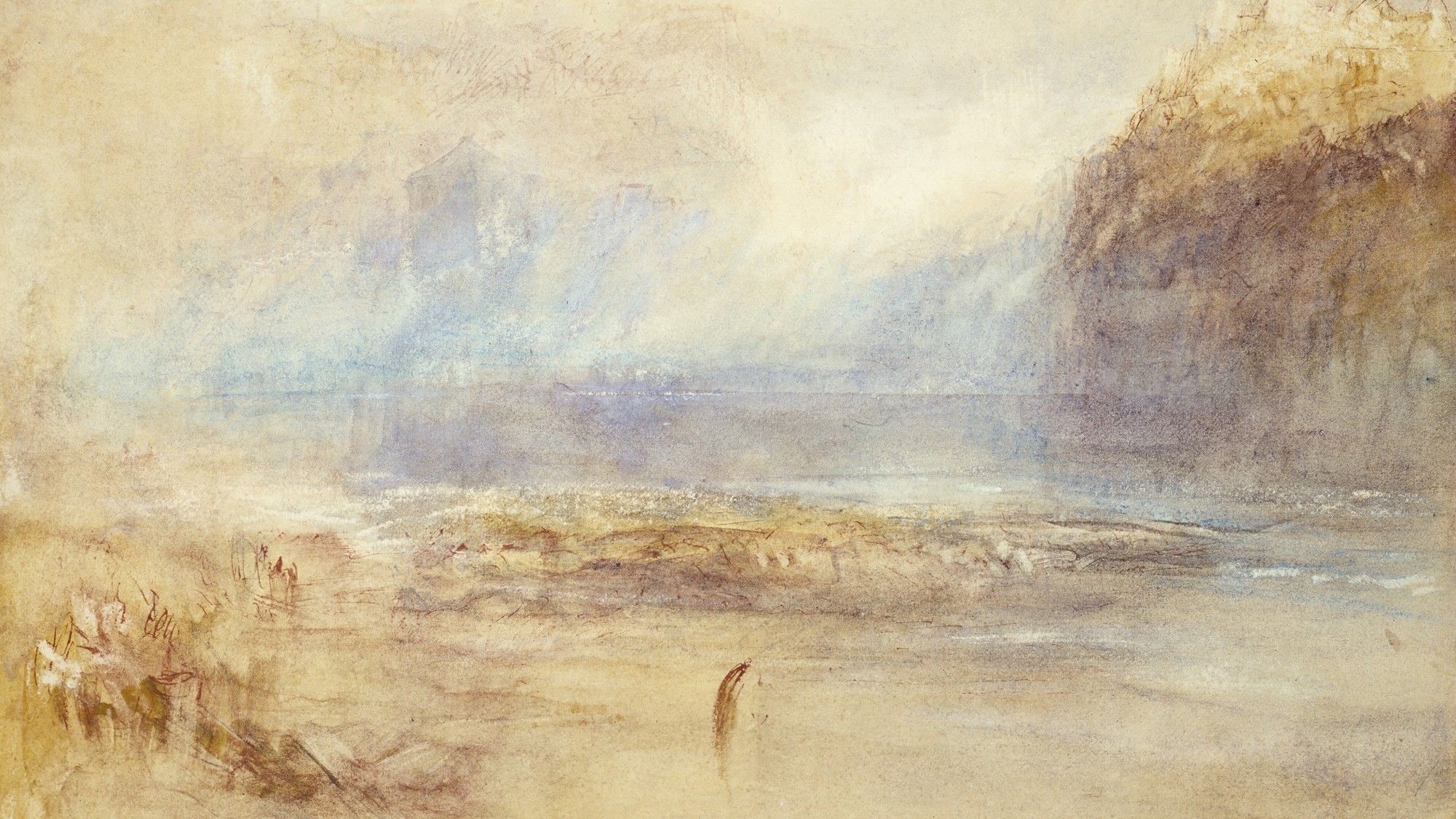 Turner: The Secret Sketchbooks – a fascinating portrait of the great painter
Turner: The Secret Sketchbooks – a fascinating portrait of the great painterThe Week Recommends BBC2 documentary examines the rarely seen sketchbooks of the enigmatic artist
-
 Dianarama examines the ‘extraordinary scale’ of Martin Bashir’s lies
Dianarama examines the ‘extraordinary scale’ of Martin Bashir’s liesThe Week Recommends Andy Webb’s book is packed with ‘astonishing’ allegations surrounding Princess Diana’s 1995 Panorama interview
-
 Eurovision faces its Waterloo over Israel boycotts
Eurovision faces its Waterloo over Israel boycottsTalking Point Five major broadcasters have threatened to pull out of next year’s contest over Israel’s participation
-
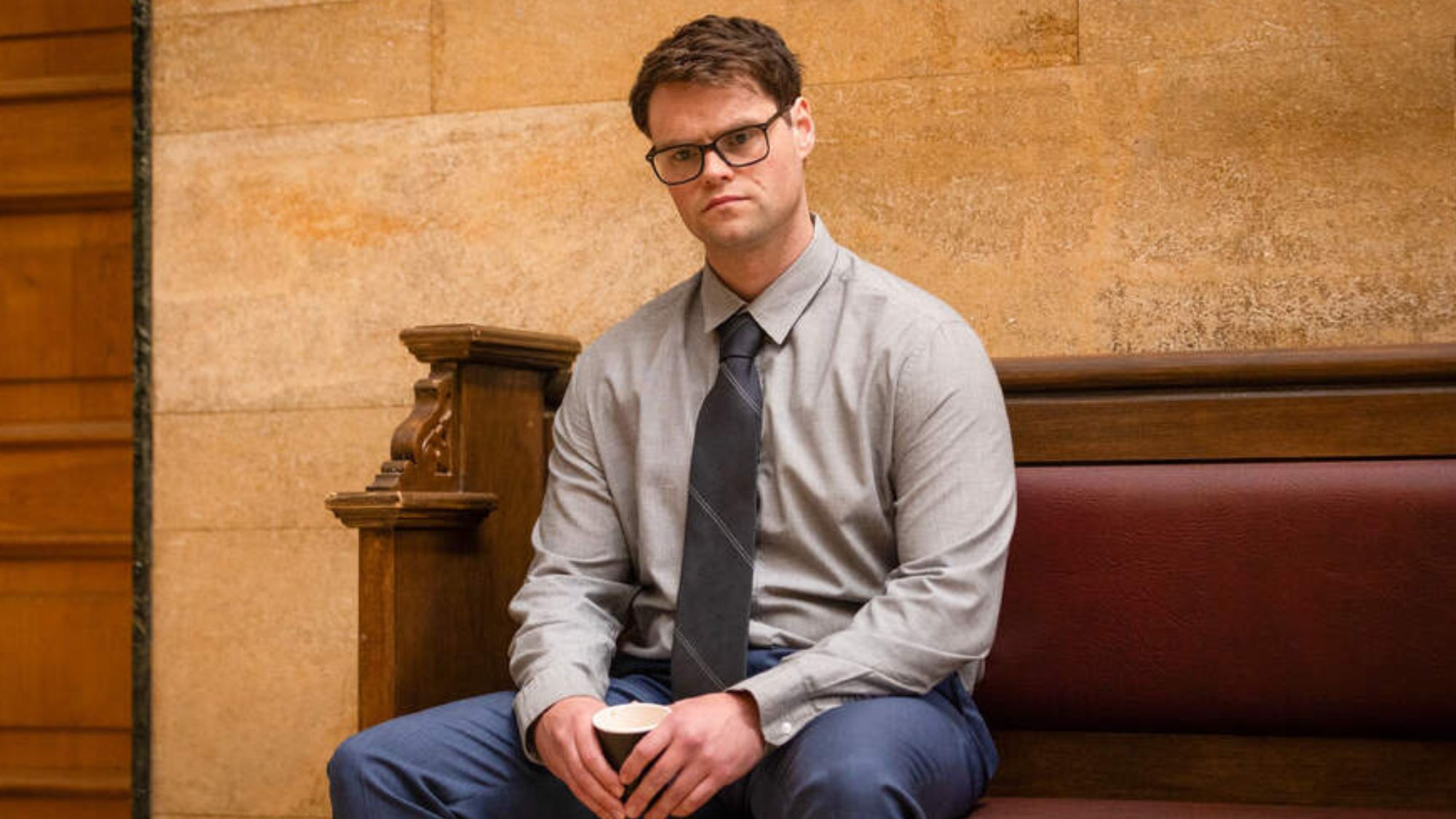 Unforgivable: harrowing drama about abuse and rehabilitation
Unforgivable: harrowing drama about abuse and rehabilitationThe Week Recommends 'Catastrophic impact' of abuse is explored in 'thought-provoking' series
-
 How to go on your own Race Across the World
How to go on your own Race Across the WorldThe Week Recommends The BBC hit show is inspiring fans to choose low-budget adventures
-
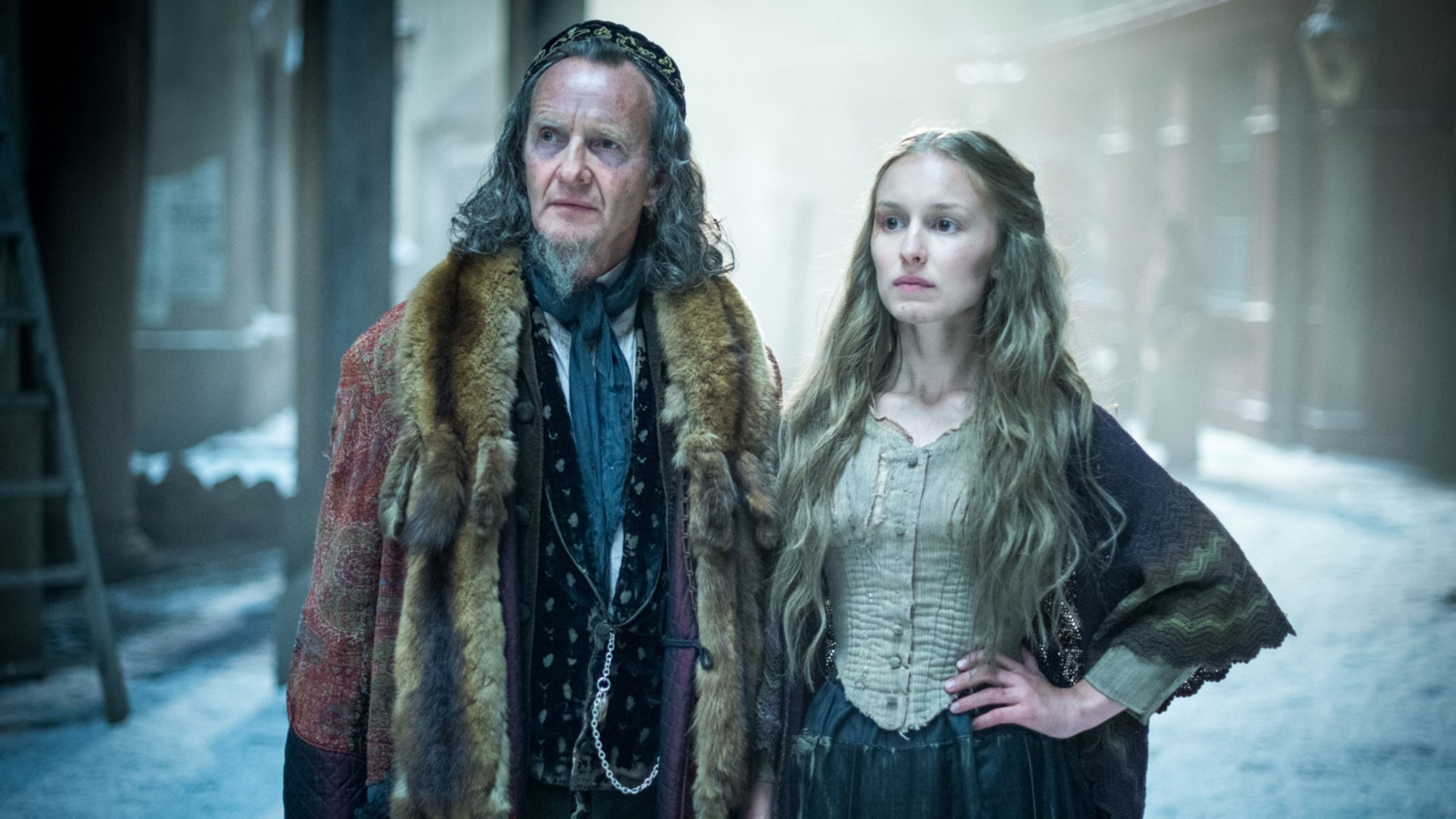 The top period dramas to stream now
The top period dramas to stream nowThe Week Recommends Heaving bosoms and billowing shirts are standard fare in these historical TV classics
-
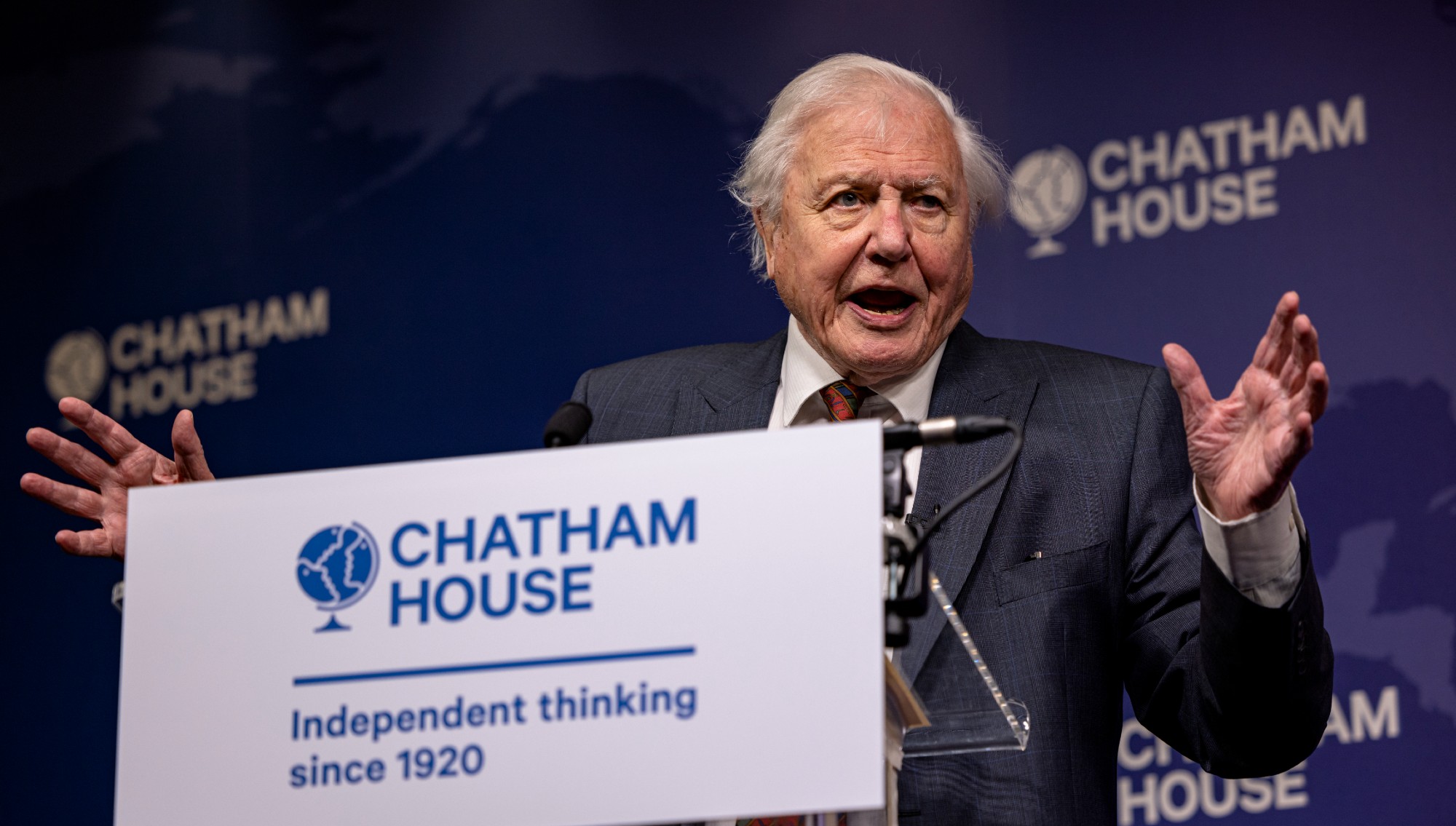 David Attenborough at 99: a 'radical' voice for climate action
David Attenborough at 99: a 'radical' voice for climate actionIn The Spotlight In his new film 'Ocean', TV's best-known naturalist delivers his strongest message yet
-
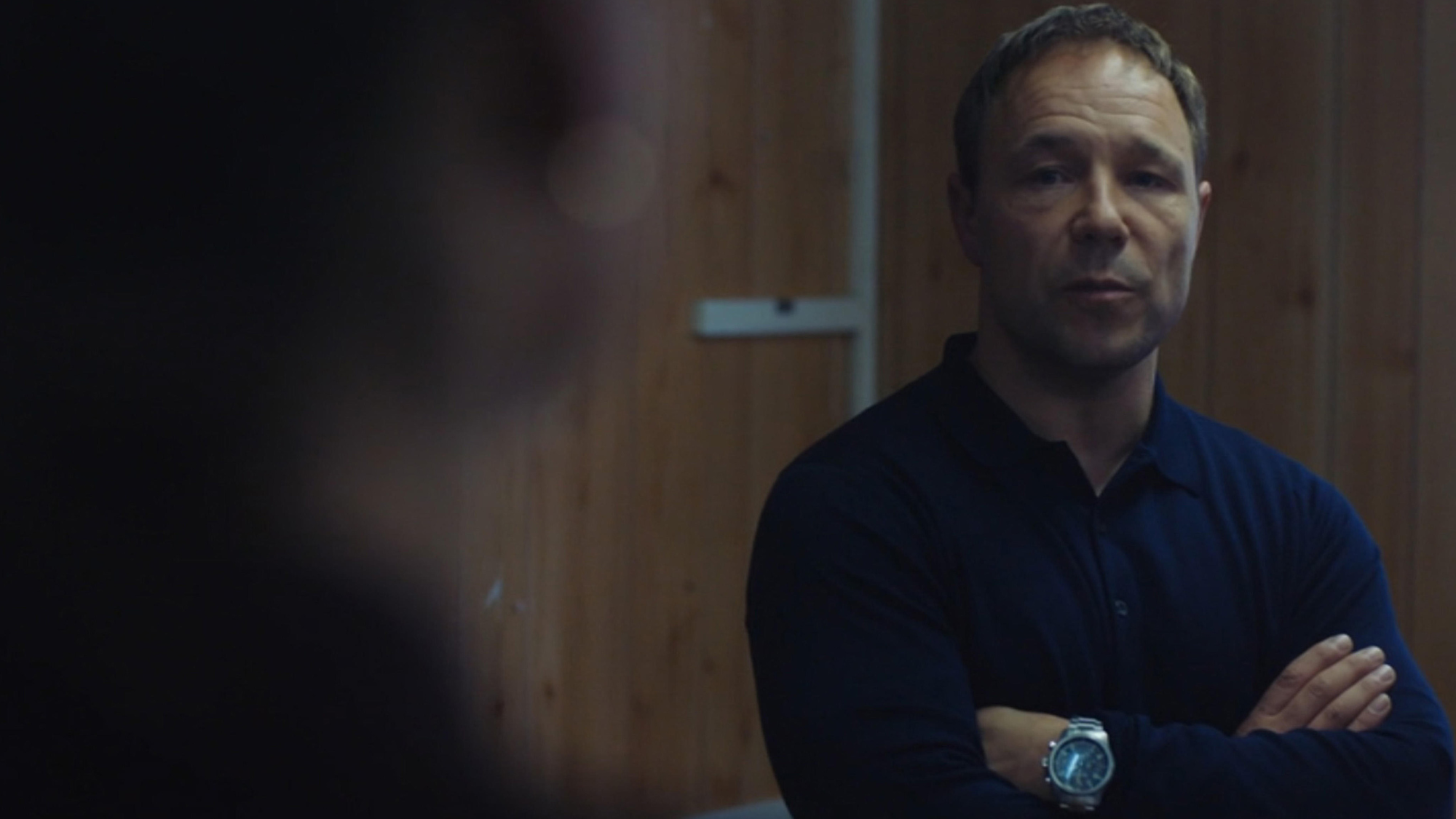 Stephen Graham's best TV and film roles
Stephen Graham's best TV and film rolesThe Week Recommends From Line of Duty to Adolescence, these are the prolific actor's must-watch projects
